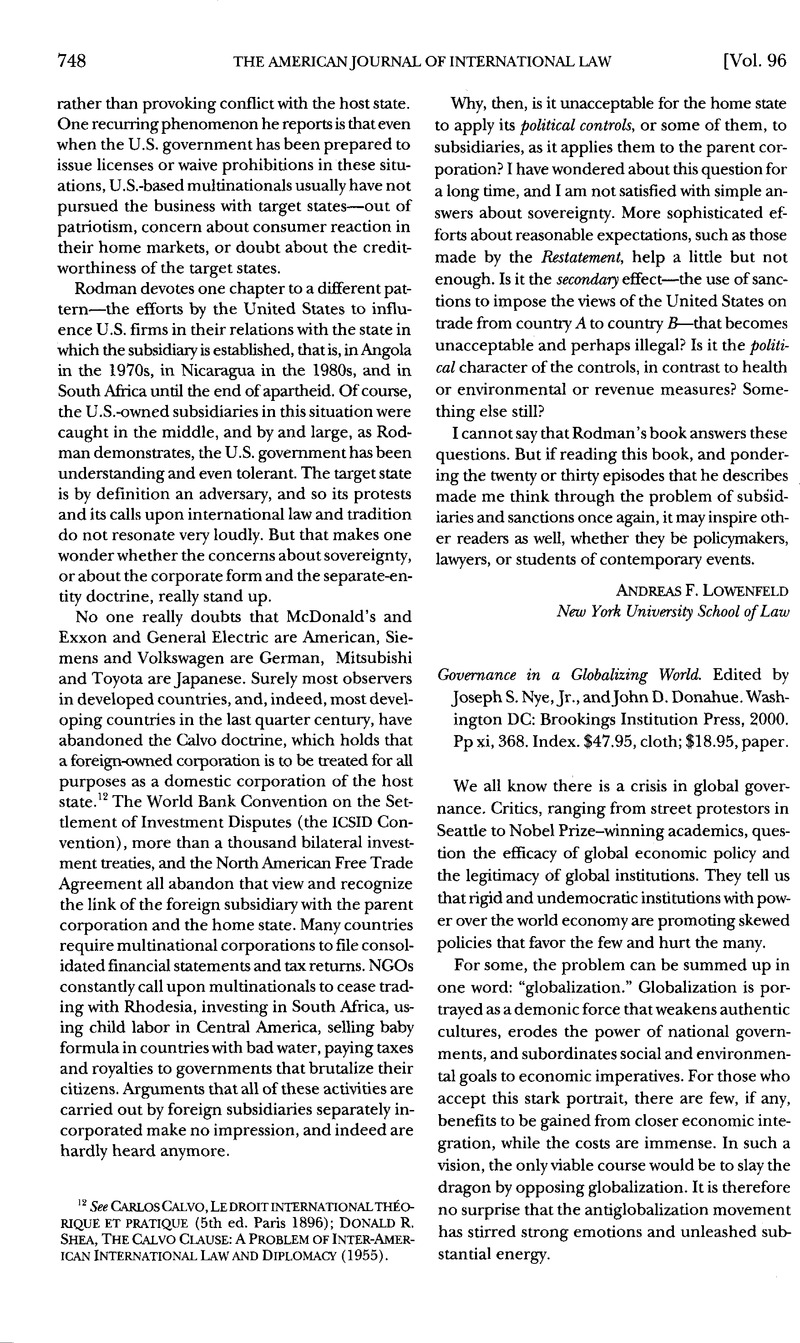Published online by Cambridge University Press: 27 February 2017

1 John, G. Ruggie, Embedded Liberalism and the Postwar Economic Regimes, in Constructing The World Polity: Essays on International Institutionalization 62 (1998)Google Scholar.
2 Howse, Robert, From Politics to Technocracy—and Back Again: The Fate of the Multilateral Trading Regime, 96 AJIL 94 (2002)CrossRefGoogle Scholar.
3 The name for this new system is hardly likely to stir passions: it is difficult to imagine anyone marching through the streets of Washington, Brussels, or Geneva demanding, “Networked minimalism!”
4 But see Howse, supra note 2.
5 For a useful analysis of the issues involved in making an “expanded network” idea work, see id.
6 See, e.g., Anne-Marie, Slaughter, Agencies on the Loose: Holding Government Networks Accountable, in Transatlantic Regulatory Cooperation 521 (George, A. Bermann, Herdegen, Matthias, & Peter, L. Lindseth eds., 2000)Google Scholar.
7 For a description of the open method of coordination, see Building Social Europe Through The Open Method of Coordination (Caroline, de la Porte & Pochet, Philippe eds., 2002)Google Scholar. For an evaluation of the operation of the OMC in employment policy, see David, M. Trubek & Mosher, James, New Governance, EU Employment Policy, and the European Social Model, in Governing Work and Welfare in a New Economy: European and American Experiments (Zeidin, Jonathan & David, M. Trubek eds., forthcoming 2003 Google Scholar), available at <http://www.iue.it/RSC/Governance>.